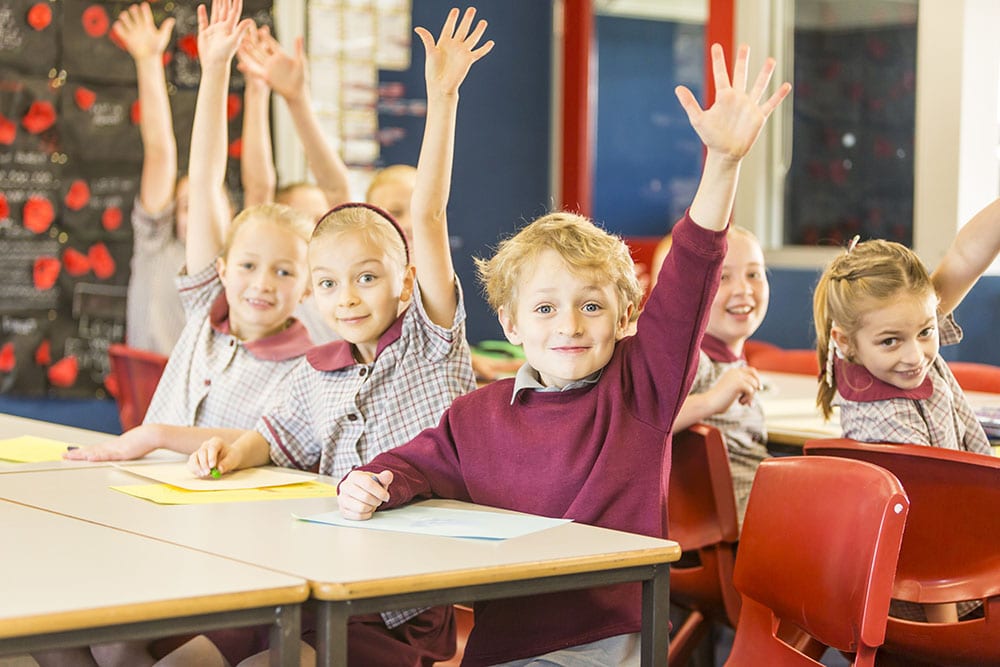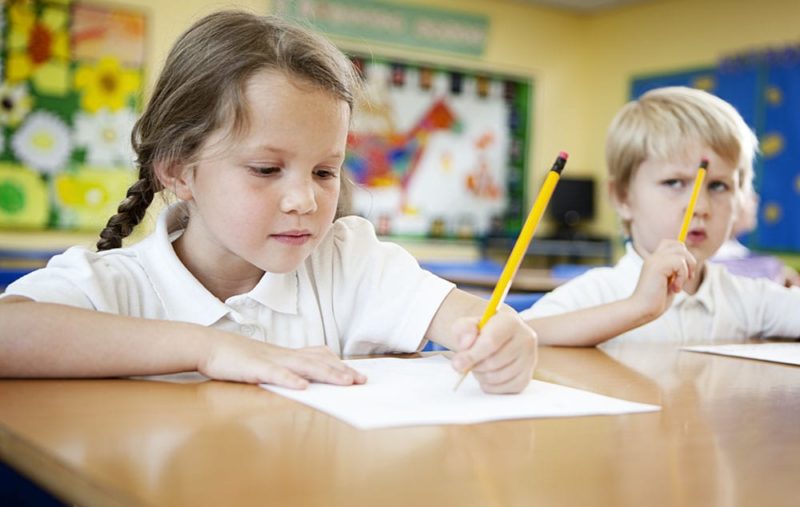What skills are children developing in Kindergarten? There’s a lot more happening than may meet the eye…
So, your little one has started Kindergarten, how exciting! You can see the excitement on their face as they prepare for school each morning, and as parents we can’t wait to see how they will grow socially and mentally. Well, that’s what Kindergarten is all about: Our children’s ability to think, recognise language and develop both fine and gross motor skills through play, art, movement and interacting with others.
More importantly, your child will be learning to become an effective learner, as they develop and extend their communication skills, build self-confidence, become creative, and develop skills that will assist them with reading, writing and mathematics.
Kindergarten children are very active explorers within their environment and during Kindy, your child will be learning lots of fundamentals you’ll likely be familiar with. However, children’s development during Kindergarten extends far past ‘A, B, C, 1, 2, 3’!
The Concept of Work
School has been described as a child’s first ‘workplace’, where teachers encourage them to become competent ‘workers’ in preparation for future work roles. Children quickly learn a set of work-related behaviours expected by their teachers such as ‘desk work’, ‘homework’ or ‘group work’. Studies indicate that although many children do not always enjoy school work, they value their work role at school, particularly when they have mastered a challenging task (Lane & Bundy, 2012).
Social Skills
Children are also taught about appropriate ways to behave in various social settings, alternatives to inappropriate behaviour, and how to respond when upset, thanks to their teachers. Through their relationships with others and their growing awareness of social values and expectations, children build a sense of who they are, adding a new dimension to their self-identity.
You may have noticed your child’s pretend play has become more complex, filled with fantasy and drama. And as they develop social relationships, your child will be playing with others to achieve a common goal, like building a sandcastle. Ultimately, they are learning to recognise the feelings and perspectives of others, which contributes to their understanding of social values.
Self-Care
Central to occupational therapy assistance is the focus on self-care. Self-care skills are one of the first ways kids develop the ability to plan and sequence the completion of tasks. It encourages them to organise themselves and develop the refined physical control required to carry out daily tasks at home and school. Kindy teachers are committed to developing children’s proficiency in self-care skills such as dressing, eating, toileting and personal hygiene.

Vocabulary
Similarly, your child will be talking lots — sometimes even when nobody is in the room! Vocabulary growth is so rapid at this age that their brain often thinks faster than they can verbalise their thoughts! They’ll be learning new words to express their opinions, argue certain points and try to reason… where necessary! They increasingly understand how to tell jokes and stories, and particularly enjoy the opportunity to participate in Show and Tell with their peers. Additionally, they’re developing the ability to compare things and speak about opposites, as well as following simple multi-step directions.
Fine Motor Skills
Throughout Kindergarten, children begin to gain proficient control over their small muscle movements and start to master tasks such as doing up buttons and using scissors to cut a variety of shapes. Children begin to refine their drawing and writing skills by copying letters, numbers and shapes, and manipulate small objects within their hands. Most importantly, children will demonstrate hand dominance, and utilise a tripod or quadrupod pencil grip (where, for a tripod grip, the pencil is held between the tips of the thumb, index finger and middle finger).
Gross Motor Skills
Last by certainly not least, your child will be developing their gross motor skills. These skills require whole body movement and involve those large core stabilising muscles of the body to perform everyday functions, such as standing, walking, and hand-eye coordination skills like throwing and catching a ball. Whether it be in the playground, at the athletics carnival, or weekly sports classes, there is typically an increase in balance, coordination and confidence in experimenting with outdoor equipment (including those monkey bars!).
Helping Your Child’s Development
Kindy kids are doing so much learning and development everyday at this crucial stage it’s no wonder they’re wiped out by Friday afternoon!
However, if you sense that your child is having any issues with their development in any of these areas, please get in touch with us (or your child’s OT) to see if occupational therapy sessions would help them.
Reference: Lane, S., & Bundy, A. (2012). Kids can be kids (p. 86). Philadelphia [Pa.]: F.A. Davis Co.


